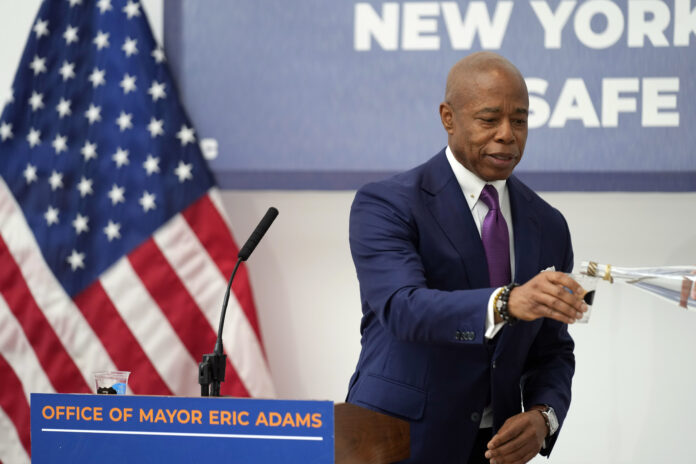|
Getting your Trinity Audio player ready...
|
Mayor Adams’ Legal Team Seeks Dismissal of Corruption Case, Cites Ethical Violations by Former U.S. Atty Damian Williams
Edited by: TJVNews.com
Mayor Eric Adams’ defense team has filed a motion to dismiss the public corruption case against him, accusing former U.S. Attorney Damian Williams of unethical behavior that undermines the fairness of the legal proceedings. According to a report that appeared on Saturday in The New York Post, Adams’ attorney Alex Spiro sent a letter to Manhattan federal Judge Dale E. Ho, alleging that Williams is leveraging the case for political gain and violating courtroom ethics laws.
In his letter, Spiro claimed that Williams, who resigned as U.S. Attorney last month ahead of President-elect Donald Trump’s inauguration, is engaging in conduct that compromises the integrity of the judicial process. As reported by The New York Post, Spiro pointed to an op-ed authored by Williams and published in City & State. In the piece, Williams described New York City as being in “deep crisis” and led by a “broken ethical compass,” a characterization that Adams’ legal team argues was a direct attack on the mayor.
Spiro further alleged that Williams has launched a personal website to promote his profile, which includes links to media articles critical of Adams. The New York Post report noted that Spiro accused Williams of violating federal courtroom ethics laws by engaging in “extrajudicial commentary” that could prejudice a fair trial, as well as New York’s Rules of Professional Conduct, which restrict public commentary in ongoing criminal cases.
The letter also accused Williams of using the case as a springboard for his political ambitions, claiming that he “effectively announced his intent to challenge Mayor Adams in the political arena.” According to the information provided in The New York Post report, Spiro argued that Williams’ actions, including the timing of his resignation and his public critiques, suggest a strategy to bolster his own political prospects, possibly for a mayoral run.
“Mr. Williams brought a meritless case against a political rival to bolster his own immediate candidacy for office, potentially including Mayor of New York City,” Spiro wrote. He added that the conduct is “highly unethical” and asked the court to take this into consideration when ruling on the motion to dismiss the case.
Adams’ legal team has gone a step further, demanding that the U.S. Department of Justice open an investigation into whether Williams’ prosecution of the mayor was “brought for improper purposes.” As indicated in The New York Post report, Spiro’s letter contended that Williams’ ethical obligations as a former U.S. Attorney remain in effect even after his resignation and that his recent actions call into question the legitimacy of the charges against Adams.
Williams has not publicly announced any political ambitions, and as The New York Post reported, he has not responded to the allegations. The U.S. Attorney’s Office also declined to comment on the matter.
In September, Adams became the first sitting mayor in New York City’s history to be indicted on federal charges. According to the information contained in The New York Post report, he is accused of accepting bribes and illegal campaign contributions from foreign sources. Despite the indictment, Adams pled not guilty, vowed to remain in office, and is scheduled to stand trial in April 2025.
The case has drawn significant public and political attention, particularly given the unprecedented nature of the charges against a sitting mayor. The New York Post report emphasized that the defense’s latest motion is a direct challenge to the credibility of the prosecution and raises questions about the influence of personal and political motivations in high-profile legal cases.
The court’s ruling on the motion to dismiss will be pivotal not only for Mayor Adams but also for the broader implications of political and ethical conduct in federal prosecutions. As The New York Post report highlighted, the defense’s allegations against Williams introduce a new layer of complexity to a case that has already captured national headlines. Whether the DOJ will launch an investigation into Williams’ actions remains to be seen, but the accusations speak volumes about the contentious nature of the legal battle ahead.
With the trial scheduled for April, the case promises to remain at the center of New York City’s political and judicial discourse in the months to come.




